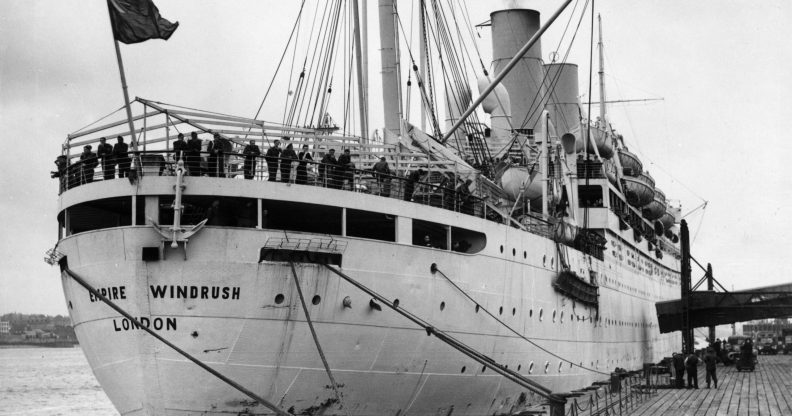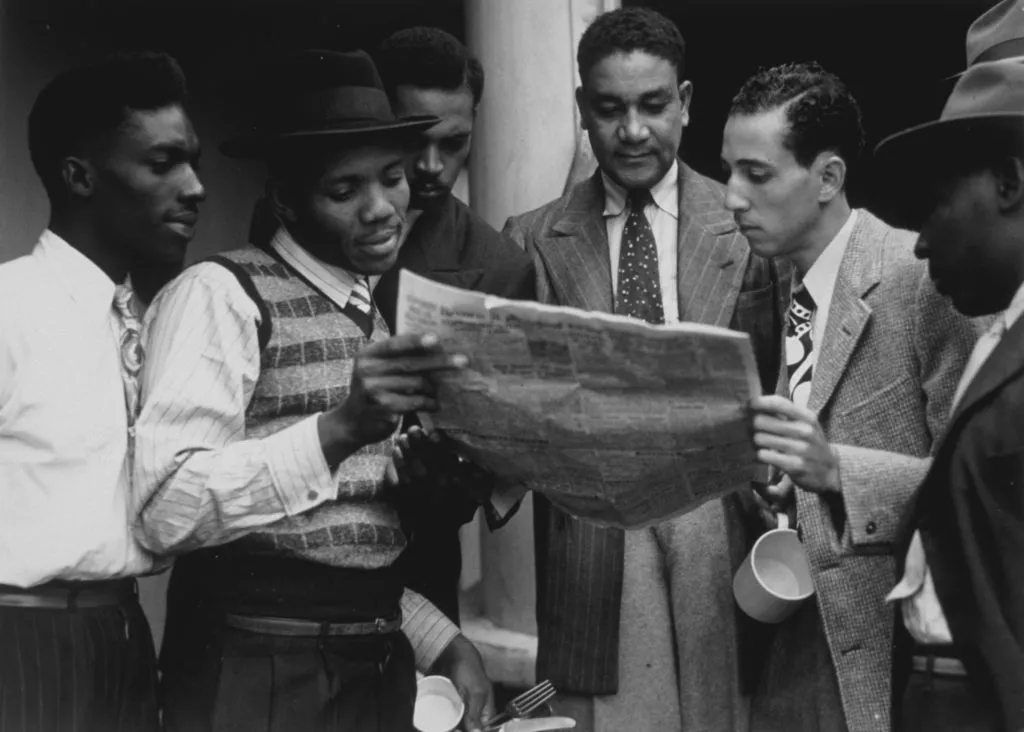Meet the proudly Black ‘gay father of the Windrush generation’ who fought discrimination in style

The Empire Windrush. (Getty)
On Windrush Day, June 22, 1948, hundreds of Black Caribbean people arrived in the port of Tilbury, near London, having been invited to help rebuild the UK after the war left it with huge labour shortages.
There to greet them that day was Ivor Gustavus Cummings, a gay Black man who had reclaimed the word queer long before others did the same.
A senior civil servant – and the only Black official – in the Colonial Office (a predecessor of the Foreign Office), Cummings devoted much of his life to serving Black citizens who’d arrived from the Colonial-era Caribbean and African nations.
He was proud of his sexuality at a time when homosexuality was still illegal in the UK – four years after the Windrush docked, Alan Turing was chemically castrated for “gross indecency” with another man.
Despite this, Cummings was “a fastidious, elegant man, with a manner reminiscent of Noel Coward – he chain smoked with a long cigarette holder and addressed visitors as ‘dear boy’,” according to a passage in Stephen Bourne’s Mother Country: Britain’s Black Community on the Home Front.
Dubbed “the gay father of the Windrush generation”, Cummings was on hand that day to welcome these British citizens.
“I am afraid you will have many difficulties,” he warned them. “But I feel sure that with the right spirit… you will overcome them.”
Ivor Cummings was blocked from joining the army because he was Black.
Ivor Cummings himself knew precisely what obstacles the Windrush generation were to face. Born in England, his mother was a white English nurse, his father a Black Sierra Leonean doctor.
After being prevented from pursuing a career in medicine due to poverty, he was then blocked from joining the military due to a law stating all army officers had to be “of pure European descent”. This was struck down shortly after, but by this time Cummings had begun his civil service career.
Before Windrush, he advocated for African and West Indian seamen and workers during the war, who faced a “colour bar” preventing them from entering air raid shelters. He also rallied against police brutality, after receiving reports that Black people were being “unduly molested” by officers in the 1930s.
He often voiced his upset by speaking to the press, or by reporting incidents to Edwina Mountbatten, who would, reportedly, in turn tell him of King George VI’s dislike of discrimination.

Jamaicans reading a newspaper whilst onboard the Empire Windrush, where they were met by Ivor Cummings. (Getty)
Though Ivor Cummings’ involvement with Windrush was officially to greet them as an envoy of the crown and instruct them on how to find housing and jobs, he continued to support many for as long as they needed.
Later he was appointed OBE and spent some time in the US as a fellowship. He later travelled to Ghana, where he trained diplomats and was tipped to become the country first Black governor, according to an Independent obituary.
Instead, he was posted to the Ghana High Commission in London and enjoyed other public sector roles in both London and Sierra Leone. He passed away on October 17, 1992, a few weeks before his 45th birthday – and it’s no surprise that his story, as a proudly queer Black man, is often omitted from the story of Windrush.
“Throughout a long battle with cancer, his sense of irony remained intact, obituarist Val Wilmer wrote in The Independent. “I met him towards the end of his life, but he never ceased to make me laugh, despite his obvious pain.”

